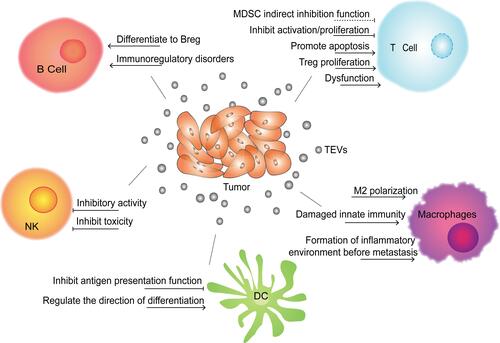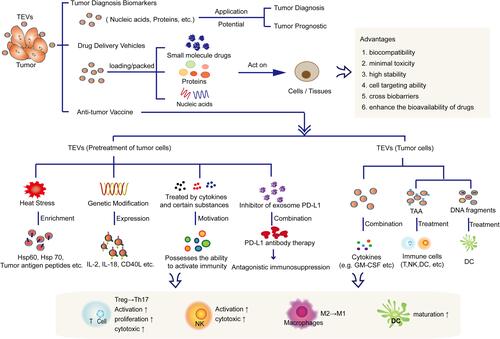Figures & data
Table 1 The Inhibitory Effect of TEVs on Immune Cells
Table 2 Clinical Trials on Using TEVs for Tumor Diagnosis Biomakers
Table 3 Study of TEVs as Drug Vehicles


